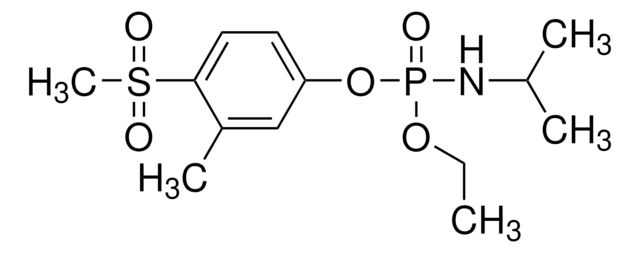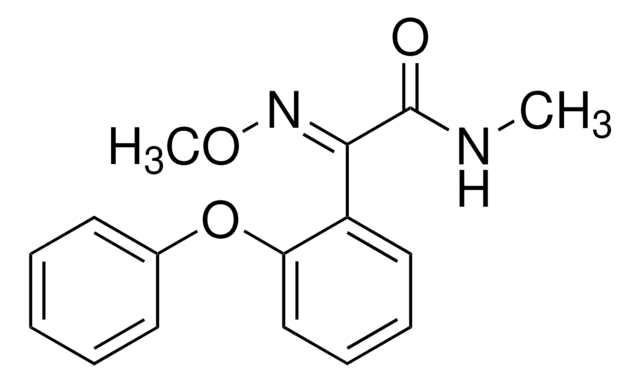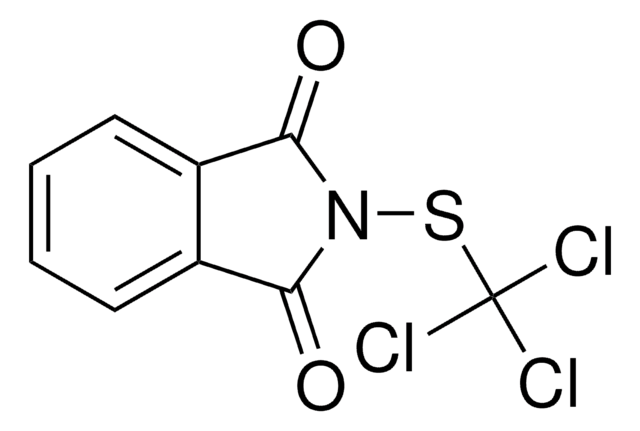33495
Famoxadone solution
100 μg/mL in acetonitrile, PESTANAL®, analytical standard
Synonym(s):
3-Anilino-5-methyl-5-(4-phenoxyphenyl)oxazolidine-2,4-dione
About This Item
Recommended Products
grade
analytical standard
Quality Level
product line
PESTANAL®
shelf life
limited shelf life, expiry date on the label
concentration
100 μg/mL in acetonitrile
technique(s)
HPLC: suitable
gas chromatography (GC): suitable
application(s)
agriculture
format
single component solution
storage temp.
2-8°C
SMILES string
O=C1OC(C(C=C2)=CC=C2OC3=CC=CC=C3)(C)C(N1NC4=CC=CC=C4)=O
InChI
1S/C22H18N2O4/c1-22(16-12-14-19(15-13-16)27-18-10-6-3-7-11-18)20(25)24(21(26)28-22)23-17-8-4-2-5-9-17/h2-15,23H,1H3
InChI key
PCCSBWNGDMYFCW-UHFFFAOYSA-N
General description
Application
Legal Information
Not finding the right product?
Try our Product Selector Tool.
Signal Word
Danger
Hazard Statements
Precautionary Statements
Hazard Classifications
Acute Tox. 4 Dermal - Acute Tox. 4 Inhalation - Acute Tox. 4 Oral - Eye Irrit. 2 - Flam. Liq. 2
Storage Class Code
3 - Flammable liquids
WGK
WGK 2
Flash Point(F)
35.6 °F
Flash Point(C)
2 °C
Personal Protective Equipment
Choose from one of the most recent versions:
Certificates of Analysis (COA)
Don't see the Right Version?
If you require a particular version, you can look up a specific certificate by the Lot or Batch number.
Already Own This Product?
Find documentation for the products that you have recently purchased in the Document Library.
Our team of scientists has experience in all areas of research including Life Science, Material Science, Chemical Synthesis, Chromatography, Analytical and many others.
Contact Technical Service










